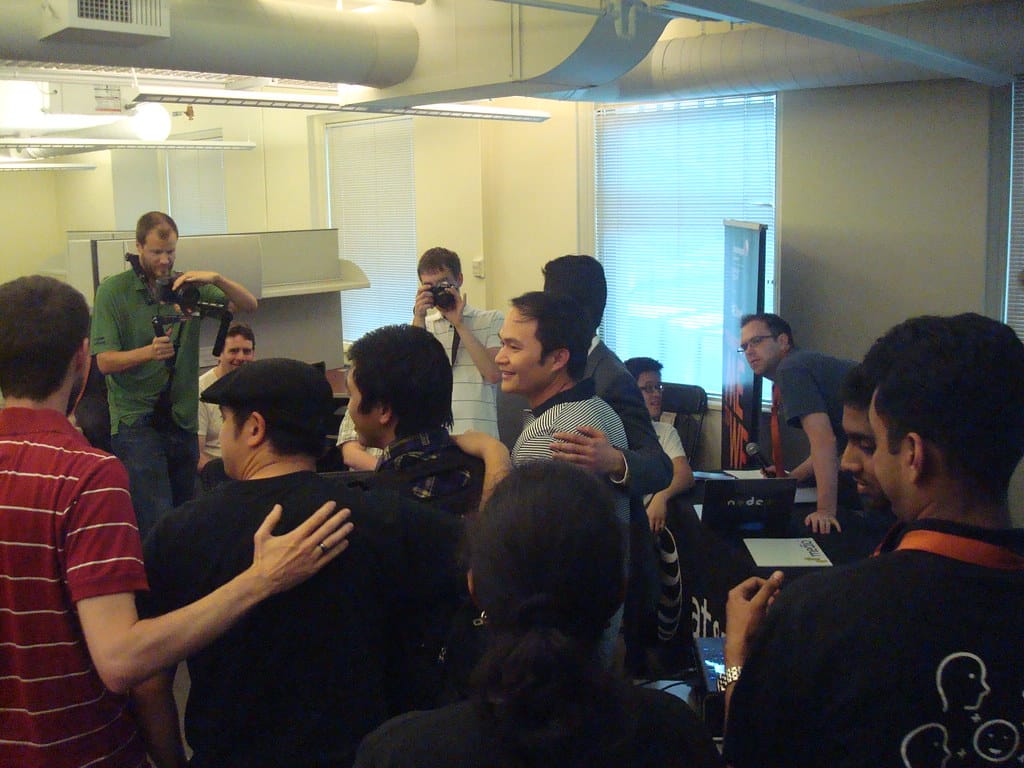The 'Vibe Coder': How a Non-Programmer Keeps Winning San Francisco Hackathons
In the heart of Silicon Valley's competitive tech scene, where coding prowess typically reigns supreme, an unlikely champion has emerged. Meet Sarah Chen, a 28-year-old marketing professional who can't write a single line of code but has somehow managed to win three major hackathons in San Francisco over the past six months. Her secret weapon? What she calls "vibe coding" – a unique approach that's turning the traditional hackathon model on its head.
The Phenomenon That's Puzzling Silicon Valley
Chen's unprecedented streak began at the San Francisco Climate Tech Hackathon in March 2024, where her team's carbon footprint tracking app took first place. Since then, she's claimed victories at the FinTech Innovation Challenge and most recently, the Healthcare AI Hackathon, earning over $50,000 in prize money and startup funding opportunities.
What makes this remarkable isn't just her winning streak – it's that Chen openly admits she doesn't know how to code. "I can barely write HTML," she laughs during our interview at a bustling Mission District café. "But I've discovered that hackathons aren't really about coding. They're about solving problems, and I'm really good at understanding what people actually need."
The 'Vibe Coder' Method Explained
Chen's approach centers on what she terms "human-centered problem identification." While other teams dive straight into technical implementation, she spends the first hours of any hackathon conducting impromptu user interviews, observing team dynamics, and identifying pain points that traditional coders might overlook.
"I walk around, I talk to people, I listen to their frustrations," Chen explains. "While everyone else is arguing about React versus Vue, I'm figuring out whether we're even solving the right problem."
The Team Assembly Strategy
Chen's methodology involves assembling diverse teams that complement her non-technical skillset. She typically recruits:
- Junior developers eager to prove themselves
- Design students from local art schools
- Domain experts relevant to the hackathon's focus
- Business-minded participants who understand market needs
"Sarah has this incredible ability to see what's missing from a solution," says Marcus Rodriguez, a software engineer who's worked with Chen on two winning teams. "She'll point out that our beautiful AI algorithm doesn't matter if users can't figure out how to log in."
The Data Behind the Success
According to TechCrunch's 2024 Hackathon Report, traditional winning teams typically consist of 70% senior developers and 30% designers. Chen's teams flip this ratio, with only 40% technical roles and 60% focusing on user experience, business strategy, and market research.
Her teams consistently score highest in categories like "User Experience" and "Market Viability" – areas that many purely technical teams struggle with. The Healthcare AI Hackathon judges noted that while Chen's team's algorithm was "competent but not groundbreaking," their user interface and go-to-market strategy were "exceptionally well-thought-out."
Industry Reactions: Disruption or Fluke?
The tech community's response has been mixed. Some view Chen's success as a welcome disruption to hackathon culture, while others dismiss it as a series of lucky breaks.
"This challenges everything we think we know about hackathons," says Dr. Jennifer Liu, a computer science professor at Stanford who has judged multiple events. "Maybe we've been too focused on technical complexity and not enough on actual problem-solving."
However, skeptics argue that Chen's approach wouldn't scale in real-world development scenarios. "Hackathons are artificial environments," counters veteran Silicon Valley developer Tom Mitchell. "You can't 'vibe' your way through a production codebase."
The Broader Implications
Chen's success highlights a growing tension in the tech industry between technical expertise and human-centered design. As AI tools like GitHub Copilot and GPT-4 democratize coding, the ability to identify and frame problems correctly becomes increasingly valuable.
"We might be witnessing the emergence of a new role," suggests tech industry analyst Rachel Kim. "Someone who can bridge the gap between technical capability and human need, even without deep programming knowledge."
The Takeaway: Rethinking Innovation
Sarah Chen's unconventional hackathon dominance offers valuable lessons for both the tech industry and aspiring innovators. Her success suggests that in our rush to build technically impressive solutions, we might be overlooking the fundamental question: are we solving the right problems?
As Chen prepares for her next hackathon – the upcoming San Francisco EdTech Challenge – she remains focused on her core philosophy: "Technology should serve people, not the other way around. Sometimes the best way to build something useful is to start by understanding what useful actually means."
Whether Chen's approach represents the future of hackathons or simply a fascinating anomaly, one thing is clear: she's proven that innovation doesn't always require a computer science degree.
